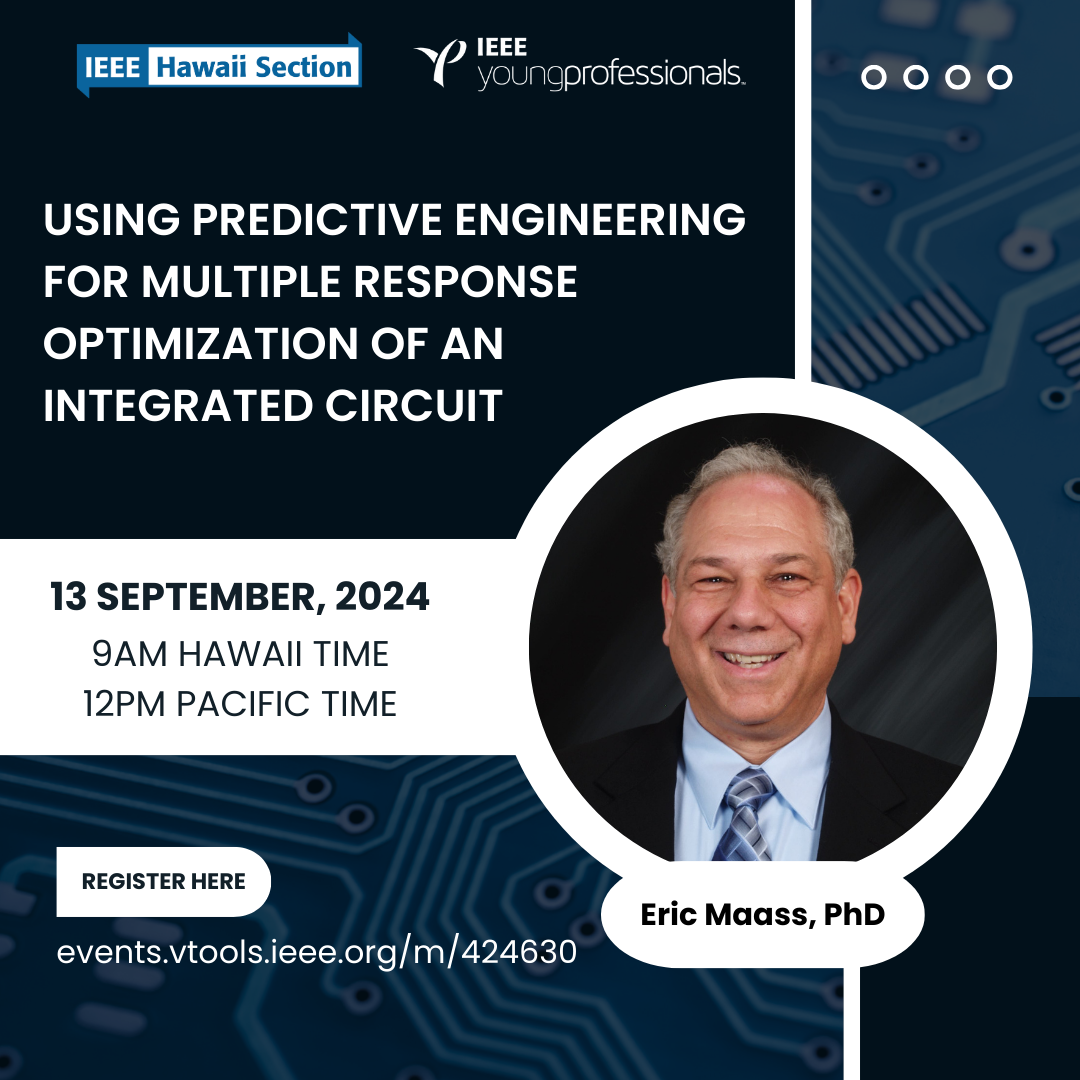Using Predictive Engineering for Multiple Response Optimization of an Integrated Circuit
Engineers traditionally use deterministic modeling in their tasks, but challenges for developing and optimizing products and processes inspire us to venture beyond deterministic to probabilistic or stochastic modeling. In this continuation from the prior presentation, a case study applying predictive engineering for the optimization of 4 requirements for an integrated circuit (Integrated Alternator Regulator for automobiles) will be shared. Deterministic models were derived by using design of experiments (DOE) and response surface modeling (RSM) in concert with circuit simulations. These deterministic models were melded with probabilistic modeling using Monte Carlo Simulation and Variance Transmission. Yield Surface Modeling™ will be introduced and shared and applied for stochastic co-optimization of the four requirements of the design. Brief summaries and overviews of other applications of predictive engineering to integrated circuit design stochastic optimization will be shared.
Date and Time
Location
Hosts
Registration
-
 Add Event to Calendar
Add Event to Calendar
Loading virtual attendance info...
- Contact Event Hosts
- Co-sponsored by Ad Astra Foundation
Speakers
Eric Maass, PhD
Biography:
Eric Maass, PhD
Senior Director, DRM, Medtronic Restorative Therapies Group
Technical Fellow and DRM Master Black Belt (Retired)
Eric retired as Senior Director and Technical Fellow at Medtronic, leading and Coaching successful new product and technology development projects. Eric joined Medtronic in October 2009, after 30 years with Motorola in roles ranging from Research and Development through Manufacturing, to Director of Operations for a $160 Million business and Director of Design and Systems Engineering for the Wireless group of Motorola SPS.
Eric was a co-founder of Six Sigma, and had been the Lead Master Black Belt for DFSS at Motorola. His book, Applying DFSS to Software and Hardware Systems, provides clear step-by-step guidance on applying DFSS for developing innovative and compelling new products and technologies, while managing the business, schedule and technical risks. His newest book, “Flawless Launches – Profitable Products” shares methods that have led to very successful product launches.
Eric received his Bachelor’s degree in Biological Sciences from the University of Maryland Baltimore County, his Master’s degree in Biomedical and Chemical Engineering from Arizona State University and his PhD in Industrial Engineering from Arizona State University. Dr Maass also currently serves as an Adjunct Professor at Arizona State University, and served as chairman of the Industrial Advisory Board for the NSF-Sponsored B.R.A.I.N Industry/University collaborative research consortium. In his active retirement, he has been invited to provide training and consulting for 17 corporations.



